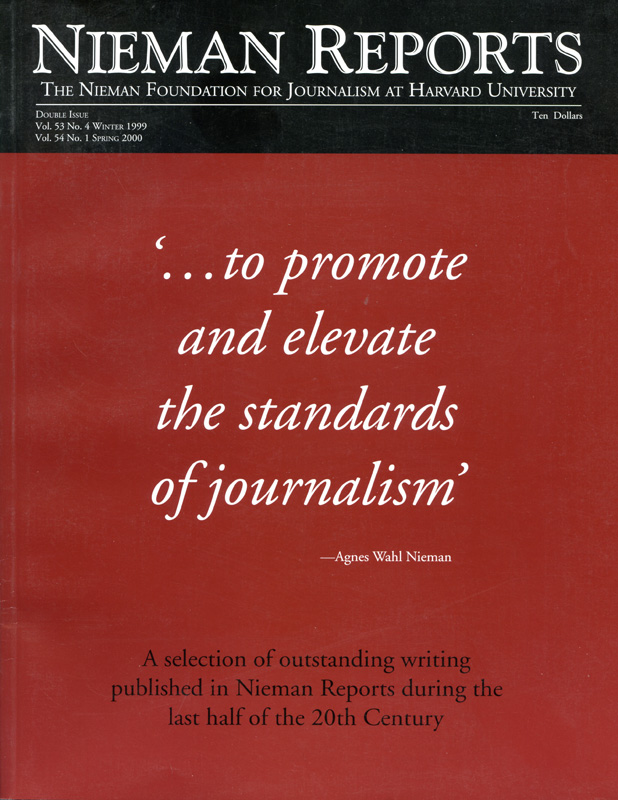[This article originally appeared in the April 1947 issue of Nieman Reports.]
In December 1942, Henry R. Luce of Time, Inc. suggested to President Robert M. Hutchins of the University of Chicago an inquiry into the freedom of the press: both its present state and future prospects. President Hutchins selected a dozen scholars to serve with himself on a Commission on Freedom of the Press. Their conclusions now published mark an event in the history of American journalism.
For the first time an examination of the performance of the press has been undertaken by a highly competent, independent body with adequate resources. They spent three years and $200,000 of Mr. Luce's money, then $15,000 more that President Hutchins dug out of the Encyclopedia Britannica.
They considered freedom of the press in terms of a responsible press, and they came out with the warning that only a responsible press can remain free. Failure of the press to meet the needs of a society dependent on it for information and ideas is the greatest danger to its freedom, the Commission finds.
In answer to the question "Is the freedom of the press in danger?" is a flat "Yes." But the reasons do not echo the familiar assumption of the publishers that freedom of the press is their proprietary right to act as irresponsibly as they please.
The Commission's reasons are:
- As the importance of communication has increased its control has come into fewer hands.
- The few in control have failed to meet the needs of the people.
- Press practices at times have been so irresponsible that if continued society is bound to take control for its own protection.
The citizen also has a right(to truthful information on public affairs), the Commission asserts. "No democracy will indefinitely tolerate concentration of private power, irresponsible and strong enough to thwart the democratic aspirations of the people. If these giant agencies of communication are irresponsible, not even the First Amendment will protect their freedom from government control. The Amendment will be amended."
This is an urgent warning to the interests in control of the press. It is going to be a hard one to brush off or forget as so many criticisms of less weight have been brushed off and ignored.
Louis M. Lyons is Chairman of the Society of Nieman Fellows Editorial Board.



